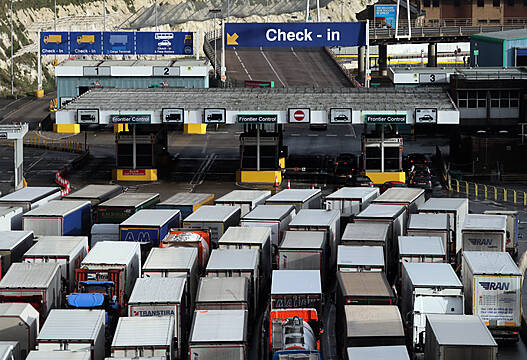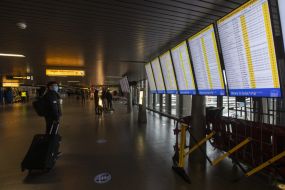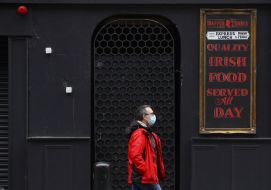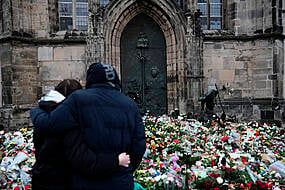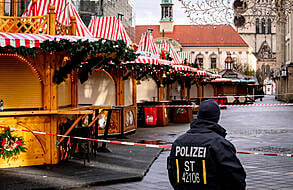Boris Johnson will hold crisis talks with ministers after France banned lorries carrying freight from the UK and countries around the world ended flights amid fears over the new mutant coronavirus strain.
The UK Prime Minister will chair a meeting of the Government’s Cobra civil contingencies committee on Monday amid warnings of “significant disruption” around the Channel ports in Kent.
Hauliers were urged to stay away from the area amid warnings of potential problems as the end of the Brexit transition period looms on December 31.
Kent Police said they were implementing Operation Stack in a bid to ease potential congestion, while the UK's Department for Transport said Manston Airport was also being prepared as another contingency measure against the anticipated level of disruption.
Countries including France, Germany, Italy, the Netherlands, Belgium, Poland, Austria, Denmark, Ireland, and Bulgaria announced restrictions on UK travel following the disclosure that the highly infectious new strain is widespread across south-east England.
Italian authorities also announced the mutant strain had been detected in a traveller who recently returned to the country from the UK.
With France suspending all traffic from the UK for 48 hours, it raised fears that trade flows could be severely disrupted while passengers across Europe could be left stranded in the final run-up to Christmas.
A spokesman for Boris Johnson said: “The Prime Minister will chair a Cobra meeting tomorrow to discuss the situation regarding international travel, in particular the steady flow of freight into and out of the UK.
“Further meetings are happening this evening and tomorrow morning to ensure robust plans are in place.”
Transport Secretary Grant Shapps urged people including hauliers to stay away from the area around the Channel ports.
My department is urgently working with Highways England and Kent Council on contingency measures to minimise traffic disruption in the area.
We will share more details on these shortly. 2/2— Rt Hon Grant Shapps MP (@grantshapps) December 20, 2020
“We expect significant disruption in the area. My department is urgently working with Highways England and Kent Council on contingency measures to minimise traffic disruption in the area,” he said.
The British Retail Consortium (BRC) warned the closure of France to UK traffic would create “difficulties” for UK imports and exports in the busy Christmas period.
Andrew Opie, the BRC’s director of food and sustainability, said any “prolonged” disruption would be a problem in the run-up to the end of the Brexit transition period on December 31.
“While goods can enter from France, few haulage firms will be willing to send trucks and drivers across to the UK without a guarantee they can return to the EU in a timely manner,” he said.
“This is a key supply route for fresh produce at this time of year.
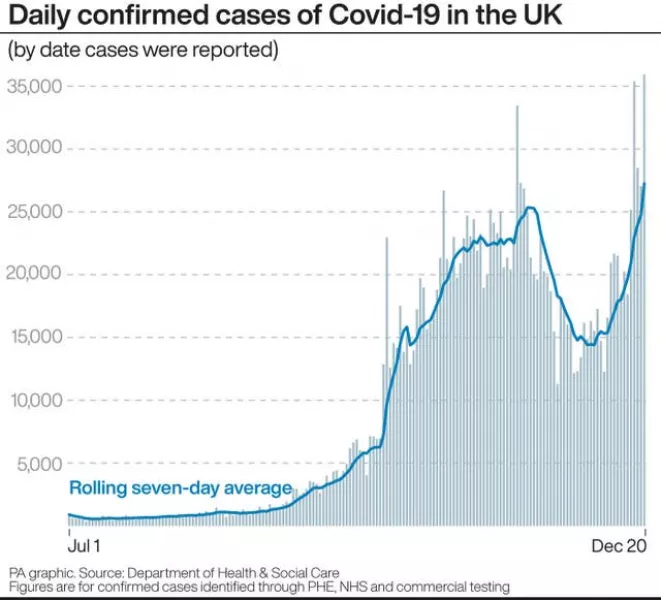
“We urge the UK Government and the EU to find a pragmatic solution to this as soon as possible, to prevent disruption for consumers.
“Retailers have stocked up on goods ahead of Christmas which should prevent immediate problems.
“However, any prolonged closure of the French border would be a problem as the UK enters the final weeks before the transition ends on December 31.”
Scotland’s First Minister Nicola Sturgeon said it was “imperative” the UK Government sought an extension to the Brexit transition period.
It’s now imperative that PM seeks an agreement to extend the Brexit transition period. The new Covid strain - & the various implications of it - means we face a profoundly serious situation, & it demands our 100% attention. It would be unconscionable to compound it with Brexit.
— Nicola Sturgeon (@NicolaSturgeon) December 20, 2020
“The new Covid strain – and the various implications of it – means we face a profoundly serious situation, and it demands our 100% attention,” she said.
“It would be unconscionable to compound it with Brexit.”
Germany, which holds the rotating EU presidency, announced it was calling emergency talks on Monday to co-ordinate the response of the bloc’s 27 member states.
It came after the Irish government said it was imposing a 48-hour ban on flights from Britain while ferries would be restricted to freight only.
